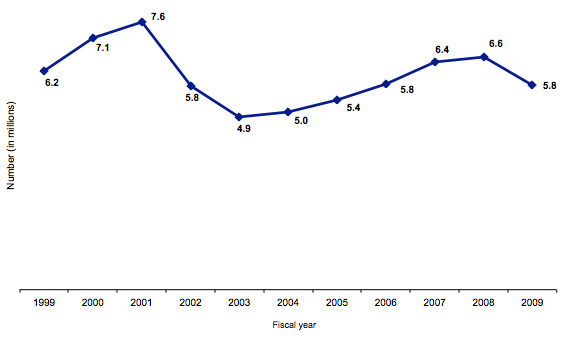There has been a ~0.8 degree increase in global surface temperatures. That's not the
result of a trend; trend is a descriptive term, not prescriptive. It
is the result of a certain causes, which can be understood with some degree of confidence through empirical investigation. That you think you're asking a serious question whether changes in the climate might be random shows that you have approximately zero understanding of the subject.
This time series is even more easily reproducible through random variation:
Therefore you would conclude that we can't tell whether the annual number of nonimmigrant visas issued in the United States is random or due to a trend. That 'logic' is utterly and irredeemably stupid of course: There are a number of more and less obvious factors influencing that time series, most if not all of which can be identified and quantified to some extent.
The fact that random variation could produce the same results means precisely two-thirds of diddly squat.
That anyone imagines that it does mean something says quite a lot about the intelligence of our 'sceptic' community, sadly. Maybe some of your alleged statisticians need funding too?

